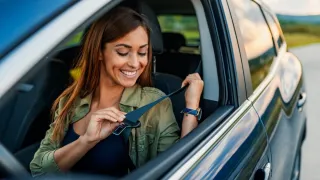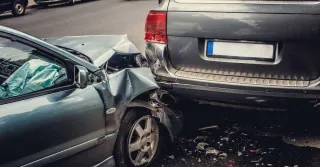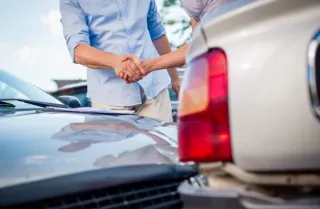Child Safety
Policy, reporting form, FAQs for parents & kids, contact details for the Child Safety Officer.
Child Safety
Policy, reporting form, FAQs for parents & kids, contact details for the Child Safety Officer.

Child Safety Commitment
We provide a safe, inclusive space where every child can confidently grow their love for tennis.


Report a Concern
Reports can be made anonymously. Only the Child Safety Officer will see your concern.


Child Safety Commitment
We provide a safe, inclusive space where every child can confidently grow their love for tennis.


Report a Concern
Reports can be made anonymously. Only the Child Safety Officer will see your concern.

Frequently Asked Questions
FAQs for Parents
Who is the Child Safety Officer and how can I contact them?
The child safety officer is Greg Hassett. He can be contacted via email, text and phone call. Email address is [email protected]
Phone number is 0438865955.
Google form on the page.
Can I report something anonymously?
Yes. By filling out the form and not providing your email address.
Peninsula Tennis Association is bound by the Child Safe Standards, we have a clear process for handling child safety concerns, and this process includes a way for people to report anonymously if they are concerned about their own safety or repercussions.
While we encourage you to provide your details to assist with an investigation we do offer the option for anonymous reporting.
You can also contact
Sport Integrity Australia has a Confidential Reporting Scheme where you can submit information anonymously.
Victoria Police and other official authorities, like the Department of Families, Fairness and Housing (DFFH)
Child Protection, have options for reporting concerns without revealing your identity.
What is the role of the Child Safety Officer?
The Child Safety Officer is the designated first point of contact within the organisation for such concerns. Their role is crucial under Victoria's Child Safe Standards and the Reportable Conduct Scheme.
1. Initial Assessment: The Child Safety Officer will listen to your concerns and gather as much information as possible, including the identities of the people involved, the nature of the alleged harm, and when it occurred. If the report is anonymous, this may be limited, but they will still act on the information provided.
2. Immediate Safety: Their first priority is to ensure the child is safe. This may involve taking immediate steps, such as separating the child from the alleged perpetrator, ensuring the child is supervised by a safe adult, or contacting the child's parents (if they are not the subject of the allegations).
3. Reporting to Authorities: The Child Safety Officer has a legal obligation to report certain allegations to external authorities.
3.1 Victoria Police: If the allegations involve a criminal offence (e.g., sexual abuse, physical assault), they must report it to Victoria Police immediately. A police investigation takes precedence over any internal investigation.
3.2 Commission for Children and Young People (CCYP): Under the Reportable Conduct Scheme, the head of the organisation (e.g., the club president or CEO) must notify the CCYP within three business days of becoming aware of a reportable allegation against a worker or volunteer. This includes conduct that may fall below a criminal threshold, such as causing significant emotional harm or neglect.
3.3 Department of Families, Fairness and Housing (DFFH) Child Protection: If the concerns relate to abuse or neglect within the child's family and you believe the child is at significant risk of harm, they may also report to DFFH Child Protection. This is often done in consultation with the other authorities.
4. Internal Investigation: The tennis association, guided by the CCYP, will conduct its own internal investigation into the allegations. This investigation is designed to determine if the alleged conduct occurred and whether it was a breach of their Child Safe Policy. The investigation may be put on hold if a police investigation is underway.
5. Outcome and Action: Based on the findings of the investigation, the association will take appropriate action. This could include disciplinary action against the alleged perpetrator (e.g., suspension, termination of membership), implementing new safety measures, or providing support to the child and family.
What happens after I make a report?
When you make a report, you have done the right thing and set a process in motion to protect a child. Here's what you can expect to happen:
1. Immediate Response and Safety First
Our first priority is always the safety of the child. We will immediately assess the situation to determine if there is any risk of immediate harm.
If we believe a child is in immediate danger or a life-threatening situation, we will not hesitate to call Triple Zero (000) immediately.
2. Reporting to the Right Authorities
Our Child Safety Officer will take your concerns seriously and confidentially. They are trained to handle these reports and will follow our Child Safe Policy and the strict legal requirements in Victoria.
Depending on the nature of the allegation, our club is legally required to report the concern to the appropriate external authorities:
2.1 Victoria Police
If the allegations involve a criminal offence (such as physical or sexual abuse), we must report it to the police.
2.2 Department of Families, Fairness and Housing (DFFH) Child Protection
If the concerns relate to a child's safety and wellbeing, particularly within their family, we may report to Child Protection.
2.3 Commission for Children and Young People (CCYP)
Under the Victorian Reportable Conduct Scheme, our club must report certain allegations of child abuse and misconduct by our workers or volunteers to the CCYP within three business days.
3. Investigation and Club Action
In most cases, the authorities (Police, DFFH, or CCYP) will lead the investigation. We will cooperate fully with their process.
While the investigation is underway, we may take immediate action to ensure a safe environment for all children. This could include placing the person under investigation on leave or suspending their involvement with the club until the matter is resolved.
Once the investigation is complete, our club will determine what, if any, further action is required, such as disciplinary measures or changes to our policies to prevent a similar incident from happening again.
4. Your Protection and Confidentiality
Your identity and the information you provide will be treated with the utmost confidentiality.
Under Victorian law, anyone who makes a report in good faith is protected from being held liable for doing so.
While we may not be able to provide you with an update on the outcome of the investigation due to privacy laws, please know that your report has been handled and acted upon.
Remember: If you are unsure whether to make a report, you can always seek advice from our Child Safety Officer or a professional body like the Commission for Children and Young People. When it comes to a child's safety, it's always better to speak up and get it wrong than to stay silent and get it wrong.
What should I do if a child tells me they feel unsafe?
Your response in that moment is incredibly important. The most critical thing you can do is to remain calm, listen to the child, and make it clear that you believe them and that it is not their fault.
Here are the steps you should take:
1. Stay Calm and Listen
Find a quiet, private place to talk, away from others.
Listen carefully to what the child is saying without interrupting them.
Avoid asking leading questions or trying to "investigate." It's not your job to figure out every detail. Your role is to listen and support.
Avoid expressing shock or anger. This can make the child feel responsible for your feelings.
2. Key Messages to a Child
"I believe you." This is the most important message you can give them.
"Thank you for telling me." Reassure them that they did the right thing by speaking up.
"This is not your fault." A child needs to hear this to know they are not to blame.
"I am here to help keep you safe." Reassure them that you will now take steps to protect them.
"I will need to talk to someone whose job it is to keep you safe." This helps them understand that you will be reporting the information to the right people.
3. Act Immediately
Do not promise to keep it a secret. This is a promise you cannot and should not keep. Be honest and say you need to tell someone who can help.
Report the information immediately to our club's Child Safety Officer.
If you believe the child is in immediate danger, call Triple Zero (000) for police and emergency services.
It is not your role to confront the person the child has accused. Leave this to the authorities.
4. Record the Details
As soon as you can, write down exactly what the child said. Use their own words and include key details like names, dates, times, and places. This information is vital for the investigation.
Remember, by responding calmly and taking the right actions, you are providing the child with a safe and supportive response that is crucial for their well-being.
How are children kept safe at PTA events and matches?
Ensuring the safety and well-being of all children is our highest priority. We take a proactive and comprehensive approach to child safety, guided by the Victorian Child Safe Standards and the policies of Tennis Australia and Tennis Victoria. Our approach is based on a culture of shared responsibility and includes a number of key measures:
1. Child Safe Standards and Policies
Zero Tolerance: Our association has a zero-tolerance policy towards any form of child abuse. This is the foundation of all our child safety efforts.
Legal Compliance: As an organisation that provides services for children, we are legally required to comply with Victoria's 11 Child Safe Standards. These standards cover everything from our leadership and governance to our online environments and complaint-handling processes.
Codes of Conduct: All of our staff, coaches, volunteers, parents, and players are expected to follow our Codes of Conduct. These codes clearly outline the behaviour that is expected and the behaviour that is unacceptable.
2. Screening and Training
Working with Children Checks (WWCC): All staff and volunteers who work with children are required by law to have a valid Working with Children Check. We verify and regularly monitor these checks.
Child Safety Training: Our coaches, staff, and key volunteers receive regular training to ensure they understand their responsibilities. This training covers how to identify signs of abuse, how to respond to a disclosure from a child, and how to report concerns.
3. Safe Environments
Supervision: We ensure there is appropriate supervision for children during all events, programs, and coaching sessions.
Open and Transparent Practices: We promote an open and transparent environment. We avoid situations where staff or volunteers are alone with a child in an unobserved area and encourage open communication with parents.
Photography and Social Media: We have clear rules around the use of cameras, phones, and social media at our events to protect the privacy and safety of children. We require permission for any photos or videos that include children.
Physical and Online Safety: Our Association events and club premises are maintained to be safe for all participants. We also have policies in place to manage the risk of harm to children in online environments, such as group chats or social media pages.
4. Reporting and Accountability
Designated Child Safety Officer: We have a designated Child Safety Officer who is the first point of contact for any child safety concerns. Their role is to ensure all reports are handled sensitively, confidentially, and in line with our policies.
Mandatory Reporting: Everyone in our association is aware of their legal and ethical obligation to report concerns. If a concern is raised, our Child Safety Officer will report it to the appropriate external authorities, such as Victoria Police or the Department of Families, Fairness and Housing (DFFH).
Reportable Conduct Scheme: Our Association is subject to the Victorian Reportable Conduct Scheme, which holds organisations accountable for responding to and investigating allegations of child abuse and misconduct. We report all relevant allegations to the Commission for Children and Young People (CCYP).
By embedding these practices into our Association and club culture, we strive to create a place where every child feels safe, respected, and encouraged to enjoy the sport of tennis.
Who can make a report?
Anyone can and should make a report if they have a concern about a child's safety. Child protection is a shared responsibility, and every adult has a role to play.
There are two main categories of reporters in Victoria:
1. Any Adult
All adults in Victoria have a legal obligation to report to Victoria Police if they form a "reasonable belief" that an adult has sexually abused a child under the age of 16. Failing to do so can be a criminal offence.
Beyond this legal obligation, any person—whether they are a family member, a coach, a teammate, or a member of the public—can make a report to Child Protection (part of the Department of Families, Fairness and Housing) if they believe a child is in need of protection due to abuse or neglect.
2. Mandatory Reporters
Certain professionals are legally required to report their concerns to the authorities. This is called "mandatory reporting." In Victoria, this includes professionals such as:
2.1 Teachers and school principals
2.2 Doctors, nurses, and other registered medical practitioners
2.3 Police officers
2.4 Early childhood workers
2.5 Psychologists
2.6 People in religious ministry
These professionals must report if they form a reasonable belief that a child is in need of protection from physical or sexual abuse.
3. What This Means for Our Association
Whether you are a player, a parent, a volunteer, or a coach, you have a critical role in keeping children safe. You should never assume that someone else has already made a report. Your report is crucial and could be the piece of information that helps a child get the support they need.
If you have a concern, you can report it to:
3.1 Our Association's Child Safety Officer
3.2 Victoria Police (000 in an emergency, or your local police station)
3.3 Department of Families, Fairness and Housing (DFFH) Child Protection
What if I’m not sure whether something is serious enough to report?
This is a valid concern, and we want to assure you that you do not need to be certain that abuse has occurred to make a report. It is not your role to investigate or to gather evidence. Your role is simply to report a concern.
Here's the most important principle to remember:
If you have a reasonable belief that a child is being harmed or is at risk of harm, you should report it. A "reasonable belief" means that a typical person, with the information you have, would have a concern. You don't need to have proof or hard evidence.
Why it's better to report than to hesitate:
You could be the missing piece: Your information, even if it seems minor, could be the final piece of the puzzle that allows an authority to act on a concern they have already received.
Authorities are the experts: The role of our Child Safety Officer, and more importantly, the role of professionals at Victoria Police and Child Protection, is to assess reports and investigate. They have the training and resources to determine if a child is at risk.
Confidentiality is protected: Your identity is protected, and the law provides protection for anyone who makes a report in good faith. You cannot be held legally liable for making a report.
What should I do if I have a concern but I'm still not sure?
Talk to our Child Safety Officer: You can contact our Child Safety Officer to discuss your concerns. They can listen and provide guidance on what to do next. This can be a confidential way to help you decide if a formal report is needed.
Make a confidential report: We would rather receive a report that turns out to be nothing than miss a report that could have saved a child from harm. Trust your instincts. If something feels wrong, it's worth reporting.
Our policy is simple: When in doubt, report. The safety and well-being of the child are always the top priority.
FAQs for Kids
Who can I talk to if I feel unsafe?
You can talk to any grown-up at your club that you trust. This could be a parent, your coach, or a team captain.
You can also talk to our special Child Safety Officer. Even if you don't know them very well, you can trust that they are here to help. Their only job is to make sure you and all the kids in our Tennis Association are safe. They know what to do and will always have your best interests in mind.
Do I have to say my name?
No. It's okay to tell us something without saying your name. The most important thing is that we know what happened so we can help. If you feel more comfortable telling us your name, that helps us check in on you later to make sure you're okay.
What happens if I tell someone?
The grown-up you tell will first say, "Thank you for telling me." They will then make sure you are safe. After that, they will talk to our Child Safety Officer so that the grown-ups who are experts in keeping kids safe can help fix the problem. You did the right thing, and they will help make sure things get better.
What if I’m not sure it’s a big problem?
It's always okay to tell a grown-up if something feels wrong, even if you're not sure how big the problem is. Grown-ups are good at figuring out what needs to happen next. It's much better to tell someone and be safe than to worry about it alone.
Can I talk to my parent or coach first?
Yes, you absolutely can. A parent or coach is a great person to talk to because they care about you a lot. They will listen to you and help you tell the right people so that everyone knows what is happening. Remember the child safety officer is always another option if you feel more comfortable talking to someone outside of your club.
Will I get in trouble if I make a report?
No, never. You will not get in trouble for telling a grown-up that you or someone else feels unsafe. We are so proud of you for being brave enough to speak up. It is the best thing you can do to help.
What if I see someone else being treated badly?
If you see a friend or another kid being treated badly, you can still follow all the same steps. Tell a trusted grown-up, and they will help that person too. Being a good friend means helping others when they need it.
What if I'm not at a Tennis event? Can I still get help?
Yes! If you feel sad, scared, or worried, you can call or chat with a grown-up at Kids Helpline. It's free and private, and they are there to help kids 24 hours a day, every day. Their number is 1800 55 1800.
Latest News and Updates
The Importance of Safe Driving Discounts
Reward safe driving habits with discounts that lower premiums and promote road safety. ...more
Protection ,Insurance &Coverage
April 24, 2025•1 min read

Navigating Insurance After an Accident
Streamline post-accident insurance claims with preparation, documentation, and support. ...more
Protection ,Insurance &Liability
April 24, 2025•1 min read

The Role of Car Insurance in Community Support
Car insurers give back through road safety initiatives and accident-prevention programs. ...more
Protection ,Insurance &Coverage
April 24, 2025•1 min read

The Future of Car Insurance with Telematics
Telematics reshapes car insurance with personalized premiums and safer driving incentives. ...more
Protection ,Insurance &Coverage
April 24, 2025•1 min read

Contact Child Safety Officer

Contact Child Safety Officer

Our 36 Affiliated Clubs
Northern Peninsula
Belvedere Park TC
Bruce Park TC
Carrum Beach TC
Carrum Downs TC
Frankston Centenary
Langwarrin TC
North Seaford TC
Sandhurst TC
Settlers Run TC
Mordialloc TC
Central Peninsula
Eden Park TC
Mornington TC
Mt Eliza TC
Mt Martha TC
Overport Park TC
Pearcedale TC
Ranelagh TC
Yamala Park TC
Southern Peninsula
Boneo TC
Dromana TC
Flinders TC
Main Ridge TC
Red Hill TC
Rosebud TC
Rye TC
Shoreham TC
Sorrento TC
St Andrews Beach TC
Western Peninsula
Balnarring TC
Crib Point TC
Hastings TC
Somers TC
Somerville TC
Tyabb TC
Cranbourne TC
Pakenham TC
Quick Links
Tennis Programs

Creating great opportunities for people to play tennis and love it. From grassroots to champions – tennis for everyone on the Peninsula.
Follow Us
Find your local tennis club on the Mornington Peninsula. Each club offers unique facilities, programs and community spirit.
View detailed club directory →
© 2026 Peninsula Tennis Association - All Rights Reserved.
Contact
FAQ
Privacy Policy
